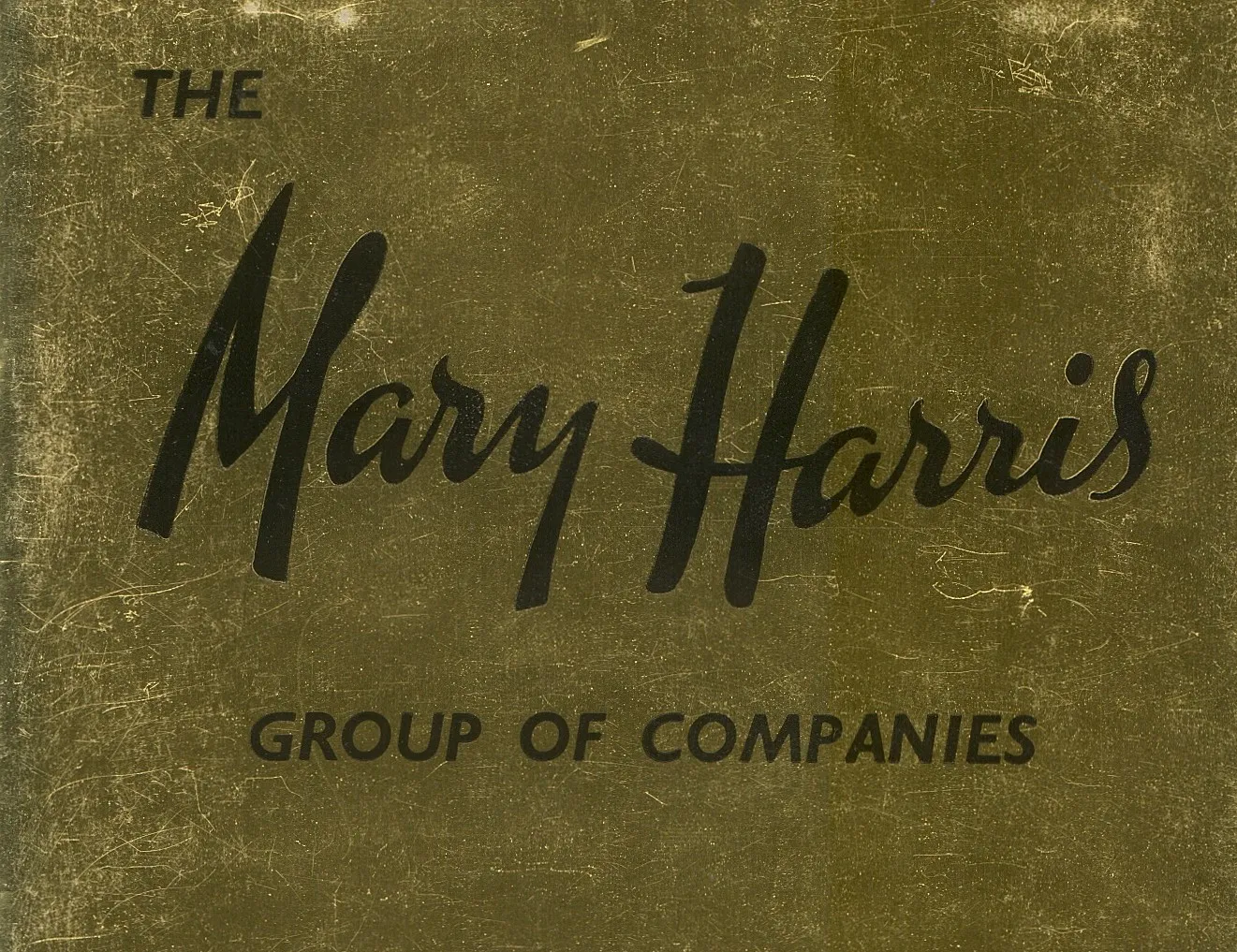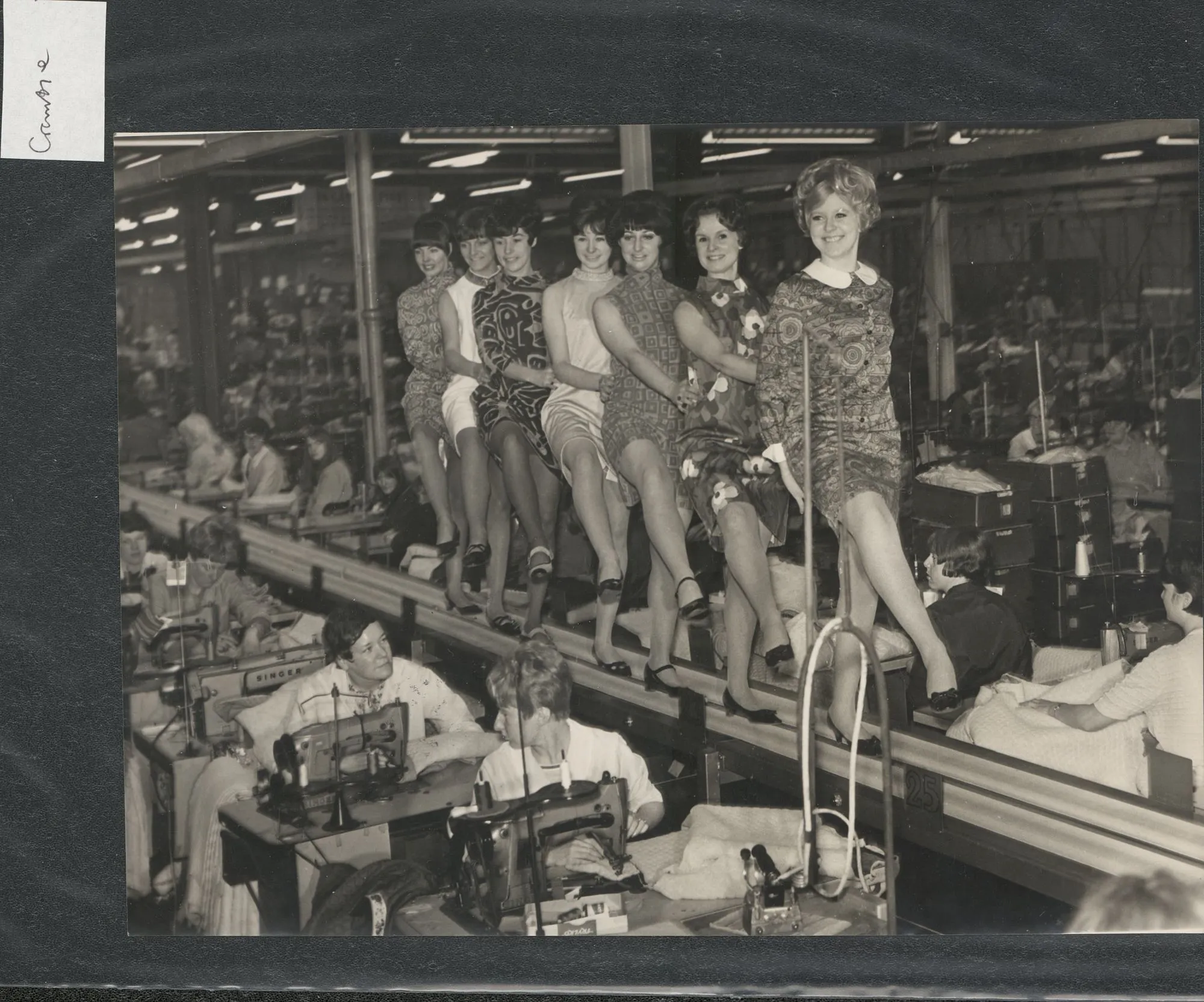
Women in Jewish owned businesses of 20th century Tyneside
Abbie Silk, an intern from Newcastle University, delved into recordings of oral history interviews of Jewish women in the North East during the 20th century, and explored their influence over household name brands.
I’ve recently completed an internship at Tyne & Wear Archives as part of the Unlocking Jewish Heritage Project. Tasked with the project of collating Jewish owned businesses in the Tyne and Wear region, I have spent many hours listening to a series of forty interviews from Jewish individuals, who have shared their life histories and experiences growing up in this region.
Sat in front of a computer with a notebook and a pair of headphones, I have been amazed at how continually enraptured I have felt by these interviews. The relaxed nature of the conversation between the interviewer and interviewee provided an intimate insight into the role of businesses in the experiences of Jewish immigrants in twentieth-century Newcastle, as they began to establish their lives here.
Humble beginnings
These interviews highlighted just how greatly these small businesses were a means of survival for so many families. Most individuals were second generation immigrants, who began their life histories with tales of how their grandparents came to the North East. Often, they emigrated to escape anti-Semitic persecution in countries such as Lithuania, Belarus, or Russia, arriving with a little money and the name of a distant relative of whom they could stay with.
After arriving in Newcastle, many families started out as ‘hawkers’, selling small goods such as buttons or ribbons door to door. Other families bought skills from their prior professions, establishing businesses as cabinet makers in the instance of Ian Caller or dressmakers like Ruth Steinberg. But what posed the strongest theme throughout these interviews was the solidarity and support provided by the growing Jewish communities in the North East as the twentieth century progressed.
The face behind the company
Several interviews cite the reason for establishing their businesses because of premises found through a friend they knew from the synagogue. Others took loans from distant relatives which led to successful business pursuits. Continually, families turned to others in times of need, and gave to each other in moments of prosperity.
In a modern world where chain retailers’ present businesses as a profit driven pursuit, these interviews opened my eyes to very real lives behind these company names. For so many Jewish families in the North East, small businesses helped to establish economic security as well as a sense of belonging that continues to thrive to this day.
These interviews adopted a semi structured approach which facilitated the telling of stories as a means to understand their lives. Through various stories told by interviewees, I began to notice that these anecdotes allowed for more acknowledgement for the role of women in businesses than in more formal documentation which addressed the e.g., incorporation or expansion of the same companies.
In this blog I wanted to centre the role of these women that were mentioned informally in such interviews but were not included in formal documentation. The following businesses had remarkable women who I believe voices deserved to be shared.
Share and Sons Ltd (SCS)
The A. Share and Sons Ltd company grew to become SCS, a nationally successful furniture and carpet business. With humble origins in Sunderland, from 1892, the Share company was a Jewish family-owned business which sought to prioritise quality products. Whilst the oral history interview is told from the perspective of Alan Share, his mother, Esther Share, comes to the forefront of conversation several times.
From the beginning of A. Share and Sons Ltd, Esther had been involved with the financial side of the company. Alan recalls that ‘to her dying day she could take a column of figures and add it up.’ But further than this, Esther held an important role in the company as she approved all financial decisions that were made. Below is a clip of a story Alan tells about his mother’s role in the company.
These stories are important to highlight. The family run nature of businesses can often obscure the extent of dedication which many mothers, daughters and wives put into these (usually) male owned businesses.
Esther was intrinsic to the survival of the company. It was her decision to make Alan’s father get his brother to buy out A. Share and Sons, which allowed Esther and Alan to assume full executive direction. In addition, Esther had always advised a change in location to improve profits, and Alan cites the move of their premises as the reason for SCS’s sudden success. Thus, this anecdote illuminates the important position which Esther held within the maintenance and survival of the company.
Callers
Ian Caller is part of the Newcastle Caller family, who arrived from Lithuania in Newcastle in the 1880s. Ian owned the Caller-Pegasus business, a furniture company that also expanded into the travel agency business.

Abe Caller’s furniture business. August 6, 1966, in the Jewish Recorder (TWA: JD.JRC/18/1966)
Ian explains the origins of the Caller family business in his interview, recalling that his mother and uncle started a furniture business in the early 1900s. Pearl, his mother, and her brother Simmon established a furniture business upon arrival in Gateshead. Despite joint ownership, the business was called ‘Simmons Furniture Company.’
When Simmon went to war, Pearl ran the furniture business single-handedly for four years. However, upon Simmon’s return, it was decided by Pearl’s uncle, Joseph Cohen, that Pearl should no longer run the business with Simmon, as he needed to find a wife. Pearl was paid off and became a nanny to her uncle Joseph for several years.
Stream episode Ian Caller by Must-see Stories podcast | Listen online for free on SoundCloud
This tale demonstrates the importance of recording life histories. Pearl’s name was never included in the company name. Without these stories, we would have no knowledge that Simmons Furniture Company had been single-handedly run by a woman for several years.
Pearl's influence continued beyond her role in the Simmons Furniture Company. As a result of her expertise in furniture making, she encouraged her husband, Abe Caller, to establish the ‘Caller’ furniture business. Caller grew to become a household name. In addition, as a business they were greatly involved with the local community, putting on Christmas events in collaboration with local charities for children during the 1970s.

Callers furniture store, Northumberland Street, Newcastle, 1971.
Steinberg’s the Tailor
Ruth Steinberg tells the tale of her mother, who was an immigrant from Belarus. Her family made money in the early days by fixing buttonholes and collars. Ruth’s mother went on to become a well-known tailoress in Newcastle.
She established Steinberg’s the Dressmaker, which held premises on 73 High Street. Ruth’s mother sold haute couture and made-to-measure clothes as well as corsets, which she sold to high-ranking brand Spirella. A woman owned business in this period was uncommon, but Ruth recalls that her mother was a very successful businesswoman, as her business lasted for several decades.

A picture of Spirella training, which Ruth’s mother likely attended.
In the clip below we hear Ruth as she speaks of her mother’s business in Newcastle.
Stream episode Ruth Steinberg by Must-see Stories podcast | Listen online for free on SoundCloud
Whilst Ruth provides a detailed account of her mother’s business and the high regard she received from her clients, there is incredibly little secondary information about this business. Through this search I became aware of a drawback of oral history as a source for research.
During the whole of Ruth’s interview- she does not mention her mother’s name once. Quite reasonably, Ruth’s mother’s first name is so obvious to her that she never felt the need to clarify it. However, this posed significant problems in trying to track the ownership of the business. Business directories do not mention Steinberg’s, and I found no photos or evidence of a shop front. This would be expected for smaller businesses who perhaps could not afford to advertise in a directory. However, it seems that Steinberg’s dealt in high end affairs. Thus, we can speculate from Ruth’s accounts that she enjoyed reasonable economic success.
Ruth’s story provides immense value, and a deeply personal insight into the lives behind these businesses. However, the difficulty in finding research to corroborate these stories highlights the limitations of using only oral history as a means of investigation.
Nonetheless, I felt that Steinberg’s the Tailor was an important business to champion. Owned by a woman in the 1950s, it is a testament to the talent and resilience of Ruth’s mother.
Mary Harris Gowns Ltd
Mary Harris, originally Miriam Levine, and her family fled Minsk in Russia to escape anti-Semitism. Upon leaving school at fourteen Mary set up a small business making clothes at home. After purchasing four sewing machines on Westmorland Road, Mary Harris Gowns Ltd was born.

Mary Harris Gowns brochure, 1969.
Her early success led to the purchase of several factories in the North East, and the eventual establishment of a head office in Gateshead’sTeam Valley. Working as suppliers for Marks and Spencer’s, Mary Harris Gowns enjoyed great success, employing up to 2,000 people from the years 1939-1970. Mary’s family believe her fear of poverty as a result of fleeing as a child is what motivated her to pursue such a successful career.
During World War Two Mary was involved in the construction of flags for D Day, meaning she was one of the few people to know about D Day before its occurrence. During the war they also made pyjamas and webbing, contributing significantly to the war effort. The clip below explores Mary’s popularity among her staff, alongside the inclusion of welfare departments in her factories, which was very uncommon at the time:
Stream episode Ann Crombie by Must-see Stories podcast | Listen online for free on SoundCloud
Mary Harris Gowns was taken over in 1970 by Vanonta Vivella, as Mary grew severely ill. Mary’s attitude to her business- the care she took over her staff, and her commitment to their welfare, is a wonderful demonstration of how a people over profit ethos can be incorporated into a business.

Mary Harris staff handbook, 1960s.
Looking forward
One of the greatest takeaways from this project has been a realisation of just how great the human side to business is. The family run nature of these organisations meant their services were about so much more than profit margins. Whilst initially a means of sheer survival, shops like Callers contributed immensely to Newcastle through collaboration with the council, for example organising Christmas events for local children. These stories are a credit to the many families that uprooted their lives to escape injustice, and yet continued to help others in so varied, hospitable ways.
This project has and continues to champion the lives of Jewish families in the North East. It has been a privilege to cast light upon some remarkable women who contributed to the lives of many as a result of their expertise. Their stories will not be forgotten.

